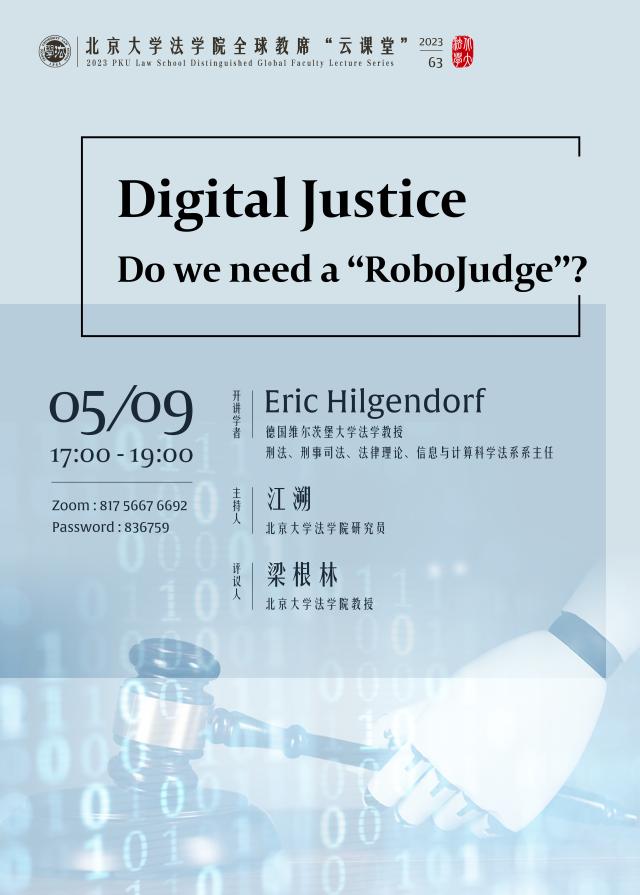Speaker: Eric Hilgendorf
Time: 17:00-19:00 p.m., May 9, 2023, GMT+8
Venue: Zoom Meeting ID: 817 5667 6692 Passcode: 836759
Abstract:
This lecture will focus on the challenges of the use of AI in forensics and justice. Professor Hilgendorf will explore the possibility of AI as a final decision maker except as an auxiliary decision support tool. Professor Hilgendorf also will expands on the factors that may make the possibility that AI become a final decision maker a reality, and the possible disadvantages that will come with it. This lecture also discusses the human-machine relation from normative aspects and possible measures to prevent the transfer of competence from humans to machine.
Biography:
Eric Hilgendorf holds a degree in Philosophy, Modern History, and Law from the University of Tübingen (BA/MA equivalent). In 1997 he was appointed Professor of Criminal Law (and related fields) at the University of Constance and later elected Dean of the Law Faculty there. In 2001 he moved to the University of Würzburg and became the Chair of the Department of Criminal Law, Criminal Justice, Legal Theory, Information and Computer Science Law. His fields of expertise and interest also include medical criminal law and bioethics. In 2010, Hilgendorf founded the "Forschungsstelle Robotrecht", a well-known research centre addressing legal issues related to autonomous systems in industrial processes, transport and private life. Since 2013, he is head of the pan-European legal research group of AdaptIVe, an EU-funded research project on the development of autonomous vehicles. In 2016, he was appointed by Federal Minister of Transport and Digital Infrastructure Alexander Dobrindt to serve on the German government's Ethics Commission on Autonomous Driving. Since 2019, Hilgendorf is Co-Director of the newly founded Bavarian Research Institute for Digital Transformation (BIDT). Moreover, he is member of the European High Level Expert Group on Artificial Intelligence.
Hilgendorf is the author of multiple books, essays, and annotations. Many of his works have been translated into other languages such as English, Spanish, Portuguese, Chinese, Japanese, Korean, Turkish and Greek. Among his works are: Strafgesetzbuch: Lehr- und Praxiskommentar(2020),Die Deutsche Strafrechtswissenschaft : Tradition und Moderne(2015),Handbook of German Criminal Law (2018), Casebook on Criminal Law: General and Specific Sections (2008).
Source: Peking University Law School
